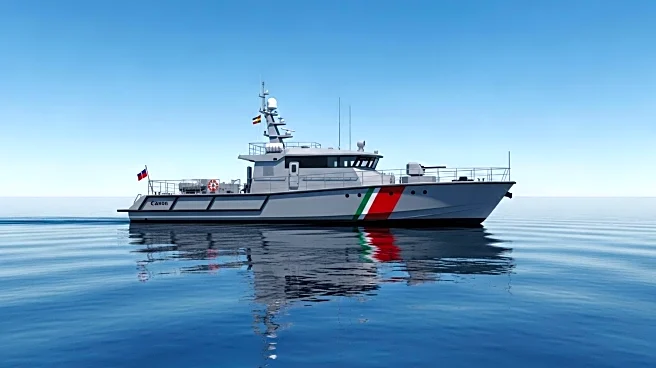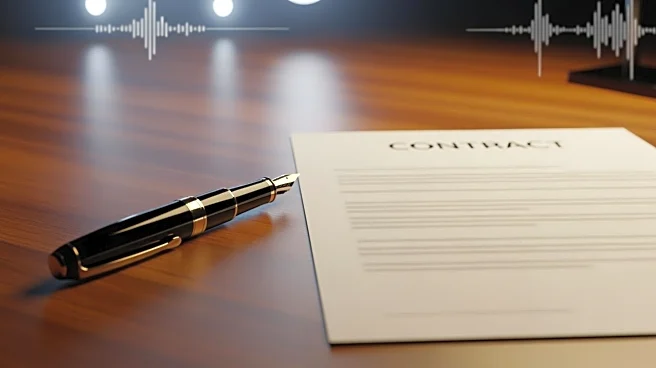What is the story about?
What's Happening?
The maritime industry is increasingly adopting hybrid patrol boats, which offer significant benefits in terms of emissions reduction and operational efficiency. The MPA Guardian, a 35-meter hybrid-electric aluminum catamaran, has been in operation for the Maritime and Port Authority in Singapore since 2022. This vessel is designed for various activities, including patrolling, search and rescue, and oil spill response. It features a top speed of 27 knots and can operate in near-silent electric mode, reducing emissions and fuel consumption. In the U.S., the King County Sheriff's Office Marine Division has commissioned a custom diesel-electric hybrid patrol boat, utilizing funding from Washington State's Climate Commitment Act. This vessel will integrate diesel engines with electric motors, allowing for electric-only propulsion for up to two hours. The hybrid system architecture includes a clutch and transmission that enable seamless switching between electric and diesel modes.
Why It's Important?
The shift towards hybrid patrol boats is significant for the maritime industry as it aligns with global efforts to reduce carbon emissions and enhance environmental sustainability. These vessels not only lower operational costs by reducing fuel consumption but also minimize noise pollution, which is crucial for operations in environmentally sensitive areas. The adoption of hybrid technology in maritime operations reflects a broader trend towards cleaner energy solutions, driven by regulatory pressures and the need for sustainable practices. This transition benefits government agencies and maritime operators by providing more efficient and versatile vessels, potentially leading to increased investment in hybrid technologies across the industry.
What's Next?
As hybrid technology continues to prove its viability, more maritime agencies and operators are expected to invest in hybrid vessels. This could lead to further advancements in battery technology and propulsion systems, enhancing the performance and capabilities of these vessels. Additionally, regulatory bodies may introduce stricter emissions standards, encouraging wider adoption of hybrid and electric technologies in maritime operations. Collaboration between manufacturers, energy providers, and maritime agencies will be crucial in overcoming challenges related to hybrid integration, such as space and weight constraints, to optimize vessel design and performance.
Beyond the Headlines
The integration of hybrid technology in maritime operations also raises considerations regarding the training and safety of personnel. As these vessels incorporate advanced systems, crew members will require specialized training to operate and maintain them effectively. Furthermore, the shift towards hybrid technology may influence the design and construction of future maritime infrastructure, such as ports and docking facilities, to accommodate the charging and maintenance needs of hybrid vessels.


















